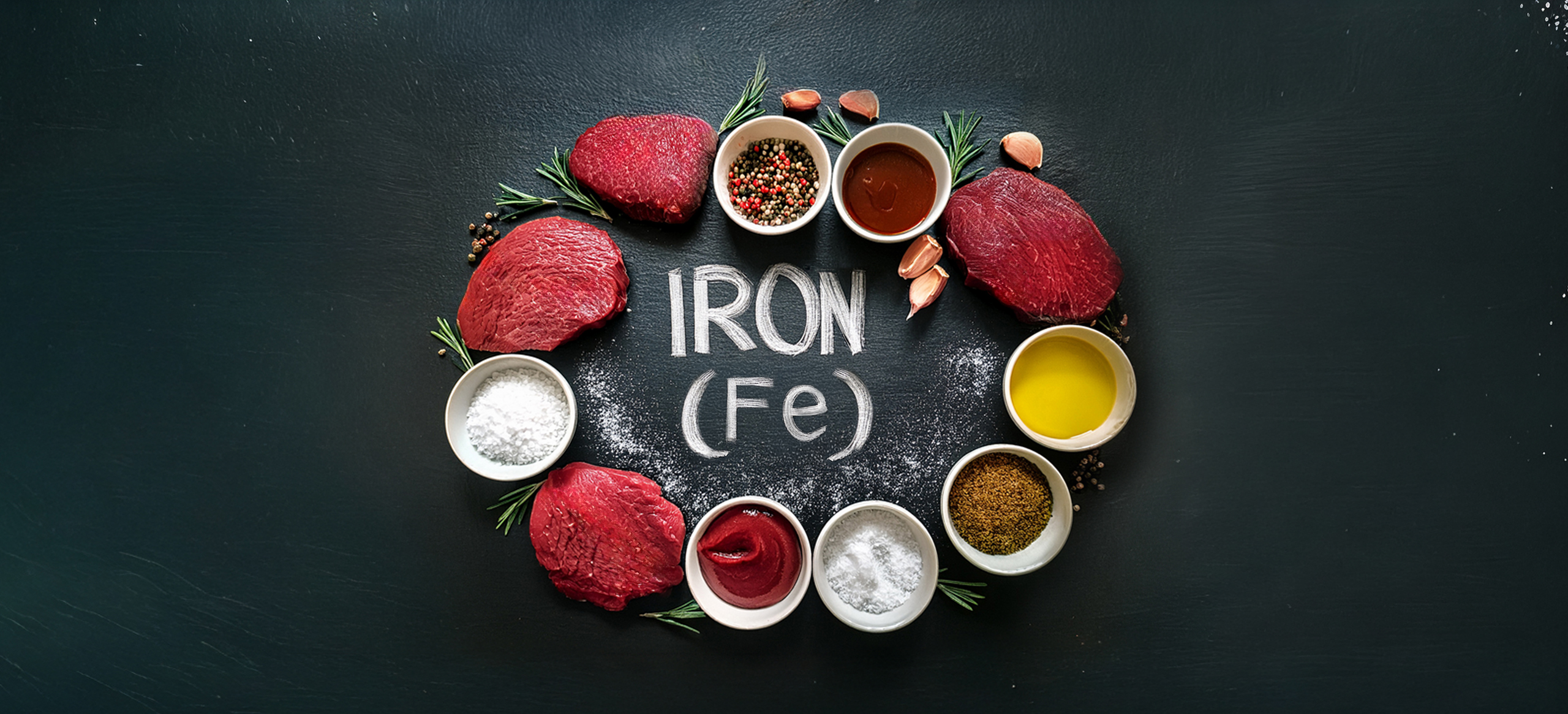Iron: The Hidden Key to Focus, Strength, and Vitality
Most (some?) people know that iron plays a key role in keeping tiredness at bay. But beyond its reputation for fighting fatigue, iron is a trace mineral that quietly supports almost every system in your body — from your brain and immune cells to your metabolism and muscle function. It’s one of those unsung nutrients that doesn’t get much attention until you don’t have enough of it.
Why Iron Matters
Iron’s most famous job is to help produce hemoglobin, the protein in red blood cells that carries oxygen from your lungs to every part of your body. Without enough iron, your cells simply can’t get the oxygen they need to produce energy efficiently. That’s why iron deficiency often shows up first as tiredness, weakness, and poor concentration.
But the story doesn’t stop there. Iron is also a vital component in myoglobin, a protein that stores oxygen in muscles, and in numerous enzymes that drive metabolism and cellular repair. In other words, it’s the mineral that keeps your entire system humming — whether you’re thinking, running, or simply breathing.
Iron and the Brain
The brain is particularly dependent on oxygen and iron. This mineral helps maintain normal neurological development and supports the production of neurotransmitters — the chemical messengers that control mood, focus, and memory.
Low iron levels can impair cognitive performance, concentration, and even emotional balance. Studies show that iron deficiency — even mild — can lead to brain fog, irritability, and difficulty learning new information. In children, inadequate iron intake has been linked to developmental delays, while in adults it can reduce work productivity and mental clarity.
Iron and the Immune System
Iron doesn’t just feed your brain — it fuels your immune cells too. It’s essential for the growth and activity of lymphocytes, the white blood cells that fight infections.
When iron levels are too low, the immune response weakens, leaving the body more vulnerable to bacteria and viruses. On the other hand, maintaining optimal iron levels strengthens your natural defences, helping your body recover faster and stay resilient year-round.
However, balance is key — too much iron can also stress the immune system, so it’s best to aim for healthy, steady intake through food rather than over-supplementing.
Iron and Energy Metabolism
Every cell in your body needs iron to convert nutrients into usable energy. Iron acts as a cofactor in enzymes involved in metabolic pathways, ensuring your body can effectively release energy from carbohydrates, fats, and proteins.
Without it, metabolism slows, muscles fatigue faster, and recovery after exercise becomes more difficult. For athletes and active individuals, maintaining adequate iron stores is critical for endurance and performance.
Recognising Iron Deficiency
Iron deficiency is the most common nutrient deficiency worldwide, affecting an estimated one in three people. Women of childbearing age, pregnant women, children, and vegetarians are at the greatest risk.
Common symptoms include:
- Persistent tiredness or weakness
- Pale skin and cold hands or feet
- Shortness of breath during mild exertion
- Headaches, dizziness, or difficulty concentrating
- Brittle nails or hair loss
If you experience these signs, it’s worth checking your iron levels with a healthcare professional.
Best Dietary Sources of Iron
There are two types of dietary iron:
- Heme iron, found in animal foods, is easily absorbed by the body.
- Non-heme iron, found in plant foods, is less efficiently absorbed.
Top heme sources include lean red meats such as venison, as well as organ meats, chicken, and seafood like clams or oysters. Venison is particularly rich — providing around 4 mg of highly bioavailable iron per 100g — while also being low in fat and high in protein and zinc.
For non-heme iron, look to beans, lentils, tofu, spinach, and fortified cereals. To improve absorption, pair these foods with vitamin C-rich produce like citrus, tomatoes, or capsicum. Avoid drinking tea or coffee with meals, as their tannins can block absorption.
A Balanced Approach
Getting enough iron doesn’t mean eating steak every day. A varied diet with a mix of iron-rich foods — and some smart food pairing — usually provides what your body needs. For those with increased requirements (such as athletes or pregnant women), including nutrient-dense meats like venison once or twice a week can make a noticeable difference.
The Bottom Line
Iron is far more than a fatigue-fighter — it’s a critical nutrient for energy, focus, immunity, and vitality. Whether you’re aiming to boost performance, support cognitive health, or simply feel your best, keeping your iron intake in check is one of the simplest and most powerful steps you can take toward long-term wellness.

